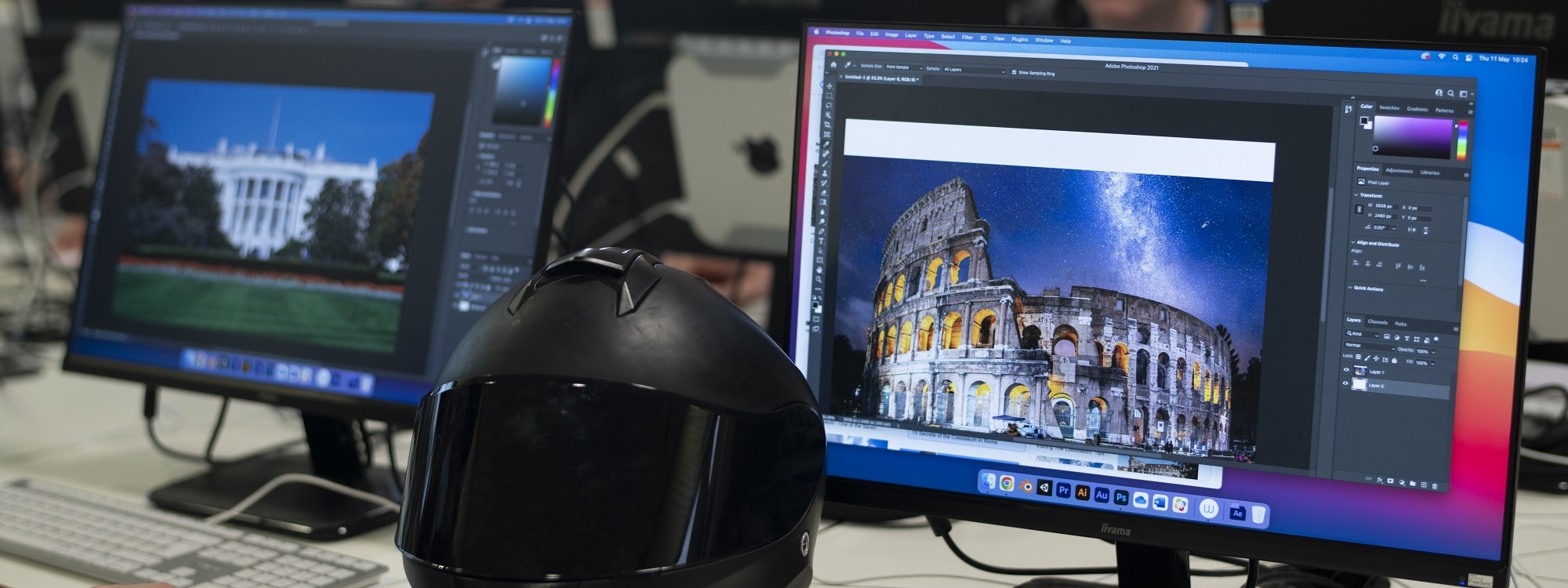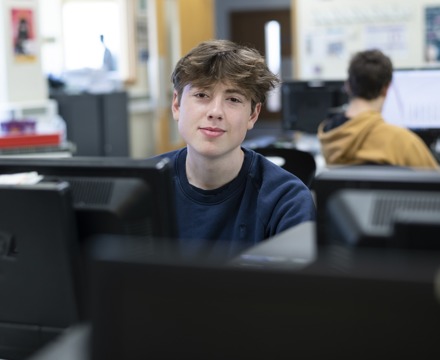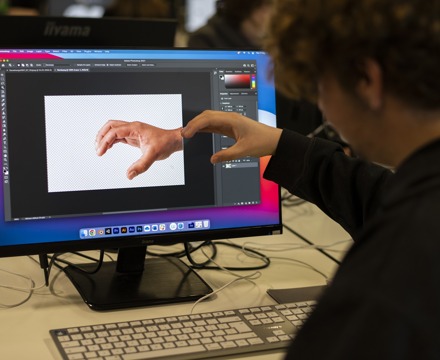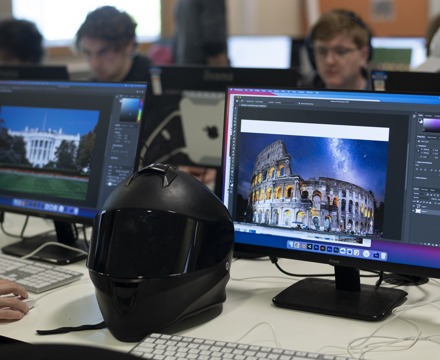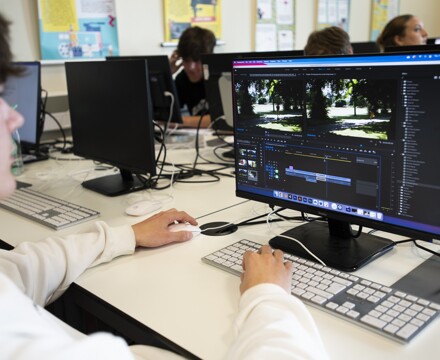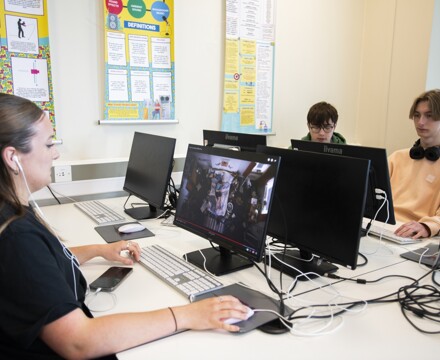Foundation in Media Practice - Level 4 Diploma
BackCourse Information
What does the course involve?
The UAL Foundation in Media Practice is an intensive one-year course designed to expand upon students’ previous areas of study to develop media skills to move into higher education courses or employment opportunities. The course builds practical media production skills across a range of disciplines and offers students the ability to explore new areas of creative practice and contextual understanding. The course allows you to become versatile, multiskilled digital content creators. You will learn the practical skills you need to thrive in numerous industries and develop your own individual passion project. You will build up an impressive portfolio of digital content creation skills and work allowing you to enter into a range of careers or higher education courses.
The course offers students a wide range of creative media and design study areas working on live briefs that are designed to mimic real world content, applied design lead tasks, marketing skills, and publication solutions. Students will explore, film & television, journalism for print and mobile platforms, advertising and marketing, design for publication, and podcasting.
Content creation is heavily utilised by brands, enhancing their visibility and enabling them to connect with audiences worldwide. Changing methods of accessing media means that students need to increasingly develop a wide portfolio of skills, whether they are working for an agency, or as solo producers and freelance designers. Further to this they need to develop an understanding of business practices, self-promotion, and contextual understanding and ethical concerns.
This course is a focussed Media pathway drawn from the UAL Level 4 Foundation Diploma in Art & Design specification. This is a broad specification which allows centres to tailor course content to diverse pathways. Therefore, upon graduation students will officially achieve UAL L4 Foundation Diploma in Art & Design.
Study outline
This course has three stages and students will move through a dynamic, broad diagnostic phase across creative workshops exploring:
- Film and television
- radio
- video production and post production
- audio production and sound design
- digital media
- photography
- journalism
- advertising and publishing
Stage 1 Creative Practice
Exploration into new ways of working and thinking and introduction to contemporary practitioners.
Stage 2 Specialist Practice
This pathway stage is divided into different areas of study such as, fiction and factual narrative, and applied content and communication for client lead tasks. This gives Students further opportunities to develop a range of pathway approaches that will further build upon their skills and understanding of media production.
Stage 3 Consolidating Practice
Students write their own proposal for this final major project working in the discipline and style they wish. This stage will determine the grade they will achieve for their final assessment.
Critical and contextual studies are integrated within the course and ensure that you will develop a thorough knowledge of both historical and contemporary media, this will help you critically review your own practice and development. Live briefs, guest speakers, and collaborative working are also seen as key developmental aspects we include in the programme.
How will I be assessed?
Throughout the one-year programme, students will complete a range of projects and assignments which will be assessed via portfolios of work. An overall grade is awarded at the end of the course following the assessment of a Final Major Project.
Progression
This course is the ideal route into a wide range of design-related and creative industry degree subjects such as: Advertising, Journalism, Graphic Design, Marketing, Film Making, Photography, Special Effects and Animation.
Students, who wish to enter employment directly could progress to work within the creative industries, including; Film and Animation, Visual Effects, Galleries and Heritage, Publishing, Graphic Design, Advertising, Marketing and Journalism.
Entry Requirements
A minimum of three A Levels which must include Art and Design Grade C or a BTEC Extended Diploma in Art and Design or Media Production at Merit level. You will also show a portfolio of work.
Can I take additional qualifications?
Suitably qualified applicants will be able to complete A-Level qualifications alongside the Diploma in order to acquire additional UCAS points. Alternatively there is the option to study towards the Extended Project Qualification. However, the Foundation course is classed as a full-time programme of study and taking other qualifications alongside it is not a requirement.
What are the costs?
At Suffolk One students will have access to digital resources, however it is recommended students have their own MacBook laptop in order compete project work remotely. As technology is constantly evolving please speak to course tutors for advice about preferred MacBook models. It is worth noting the use of Adobe Creative Suite and Apple products is a widespread standard within the creative industries. Therefore, a MacBook will be a valuable asset in students long-term career plans.
Students should also budget for trips to galleries and museums in order to gain maximum benefit from this course, students will have the opportunity to attend 2-3 trips in the academic year and we aim to keep costs below £20 for each.
What is the duration?
This is a one-year course.

